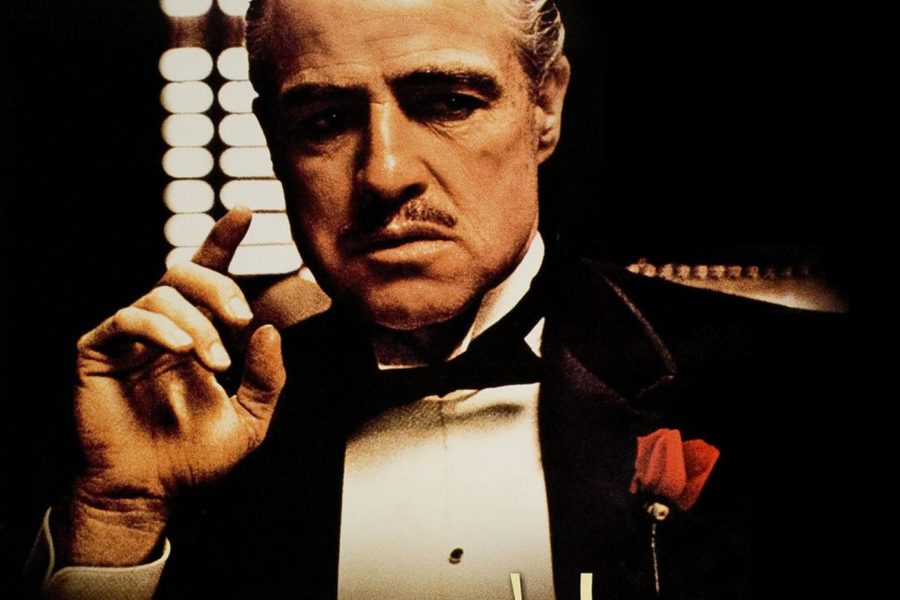
The Godfather, Francis Ford Coppola’s Mafia classic, marked its 50th-anniversary last month. It has been described—and rightfully so—as one of the greatest movies of all time. It is a film that changed American cinema.
Based on Mario Puzo’s best-selling novel, it re-established a genre that began in the 1930s with films like Little Caesar and Scarface. And it was the precursor to modern-day classics like Goodfellas and Donnie Brasco. You could also argue that the HBO mega-hit The Sopranos traces its bloodlines back to the Coppola trilogy that started a half-century ago with the March 24, 1972, opening of The Godfather.
But in the midst of all the glowing stories about Don Corleone and his family, it’s important to keep one thing in mind.
It’s fiction.
Puzo saw the story as a family saga. That was part of the pull the book and the film had on viewers. But the honor and nobility that he attached to the Corleone family was based on a myth. The reality is that the Mafia took the values of the Italian American experience—honor, loyalty and family—and bastardized them to justify its existence.
If there ever were “men of honor” they had disappeared long before Puzo began cranking out his masterpiece.
The story also tapped into the American public’s fascination with the outlaw. There is part of our psyche that identifies with and grudgingly admires the rogue, the individual who sets his own agenda, who operates on his own terms and according to his own set of rules.
Billy the Kid or Jesse James, Bonnie and Clyde or John Dillinger, Al Capone or Don Corleone, they all fit that mold and are examples of the phenomenon. Those of us who follow the rules watch and wonder about those who do not. Their success, however short-lived, is nonetheless alluring.
A New York Times review of the novel underscored that point, noting that the story “is a voyeur’s dream, a skillful fantasy of violent personal power without consequences.”
Puzo’s first novel, The Fortunate Pilgrim, was a literary masterpiece about the Italian immigrant experience in New York. But from a financial perspective, it was a flop. He wrote The Godfather looking for a payday. He got much more than he bargained for. The bestseller brought him cash and celebrity, but there are those who believe he was troubled by the glorification of the Mafia that came with the success of his book and the movies that were based on the story.
That was not the primary intention when he wrote the novel, according to Mark Seal, whose book Leave the Gun, Take the Cannoli is a fascinating account of the trials and tribulations that went into the making of the movie.
“Beneath all the blood and gore,” Seal writes, “he (Puzo) realized that these criminals weren’t merely cold-blooded killers, but family men with wives and children and grandchildren. They were also consummate American entrepreneurs.”
Seal also describes the vociferous public opposition to the making of the movie, much of which came from the Italian American Rights League. The league had launched a campaign in 1970 decrying the stereotyping of Italian Americans as gangsters and blasting the FBI for targeting defendants whose names ended in vowels. The organization threatened to picket and disrupt the filming of The Godfather which was set to shoot on the streets of New York.
Tens of thousands of Italian Americans turned out for massive rallies organized by the league. In a compromise that allowed filming to proceed, the producer of the movie agreed that the word “Mafia” would not be used in any of the dialogue. (In fact, the word only appeared once in the original script and was never spoken in the movie itself.)
The Italian American Civil Rights League was led by Joseph Colombo, boss of one of the five New York Mafia families. Colombo epitomized the dark side of the Italian-American experience and contributed to the public perception that led to the stereotyping. But those facts didn’t seem to register with the thousands of Italian Americans who shouted and marched in lockstep with a Mafia boss. Colombo’s morals and methods mattered less to them than his message. It was a page out of a political playbook that is still relevant today.
By the time the novel, and then the movie, took hold of the American public, many of the Mafiosi on whom the story was based were gone. So, for the next generation of wiseguy, The Godfather was something like a training film. It was a demonstration of how a “real” Mafioso carries himself. For twenty-something goodfellas whose families had moved from the Italian ghettoes of lower Manhattan, South Philadelphia or Newark to the homogenized suburbs of middle-class America, the movie was a look into the past, a story about how things used to be when honor and loyalty mattered, when family trumped all else, when omerta was the code that everyone lived by.
Coppola’s take was to “use the Mafia as a metaphor for America,” wrote Seal, quoting from an interview the director did with a British magazine when the film debuted.
“Both the Mafia and America feel they are benevolent organizations,” Coppola explained. “Both the Mafia and America have their hands stained with blood from what it is necessary to do to protect their power and their interests. Both are totally capitalistic phenomena and basically have a profit motive.”
In the fantasy that Puzo created, and that Coppola expanded, the Mafia was a way of life. But by late 20th century America, the profit motive that Coppola described had distorted everything else. For many, Cosa Nostra was no longer a way of life, but rather a way to make money.
“Vice is commerce” a Newark wiseguy once told me, explaining away any moral compunction about gambling, loan sharking, prostitution or drug trafficking.
“It’s all about the chicken,” said a South Philadelphia mobster now living in suburbia. Making money is the goal and the driving force.
That philosophy helps explain the death of omerta and the demise of the American Mafia. If it is a business, rather than a way of life, then wiseguys who find themselves jammed up and looking at twenty-to-life in a RICO case, make a business decision.
Omerta is not part of the thought process. The only question they ask is based on the business model: How do I cut my losses? Cooperation is the answer, and the Witness Security Program is the doorway out.
Violence, greed and treachery were all part of The Godfather. It was set in a bloody and wantonly brutal world. But the film always offered a picture built around family values.
“I believe in America” is the opening line in the movie. It is spoken by the undertaker seeking Don Corleone’s help to right a personal injustice that has befallen his family. The scene sets the tone for the rest of the film.
There is something noble about Don Corleone’s “I’ll make him an offer he can’t refuse” approach to life. And there is a certain admirable panache in Clemenza’s classic “leave the gun, take the cannoli” comment after a traitor is dispatched.
But these are fictions.
At its core, the Mafia is a corrupt, violent and evil organization. That shouldn’t be overlooked as we celebrate the 50th anniversary of one of the greatest movies of all time.
Back in March 1980, nobody made Philadelphia mob boss Angelo Bruno an offer he couldn’t refuse. They just fired a shotgun into the back of his head

